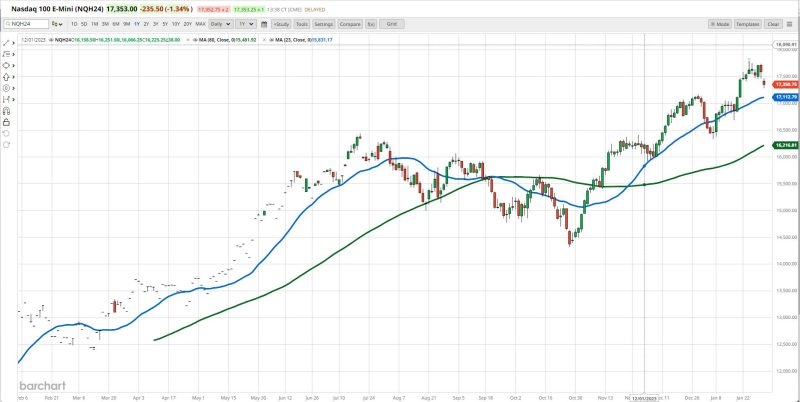Main Body:
As the world continues to navigate uncertain economic waters, there are a few key factors that have emerged as driving forces behind retail investors’ credit and their decisions in the market. One such factor is the post-tech earnings report, which provides valuable insights into the performance of tech companies and their impact on the overall market. Additionally, the Federal Open Market Committee (FOMC) plays a significant role in shaping investor sentiment, as its decisions on interest rates can have ripple effects throughout the entire economy.
When it comes to the post-tech earnings report, investors eagerly await these updates as they provide a glimpse into the financial health and growth potential of leading tech companies. The performance of tech giants like Apple, Amazon, and Alphabet, among others, often sets the tone for the broader market, given their significant market capitalization and influence. Positive earnings surprises or better-than-expected growth can instill confidence in retail investors, leading them to allocate more capital to tech stocks and potentially driving up their prices.
Similarly, disappointing earnings reports or weaker guidance can send shockwaves through the market, causing retail investors to reevaluate their positions and potentially withdraw capital from tech companies. This could lead to a downward spiral in tech stocks, impacting not only individual investors but also the overall market sentiment. Therefore, the post-tech earnings report acts as a crucial barometer for retail investors, guiding their investment decisions and influencing market trends.
In addition to earnings reports, the decisions made by the FOMC can significantly impact retail investors’ credit. The FOMC, responsible for setting monetary policy in the United States, determines the target range for the federal funds rate and influences interest rates throughout the economy. When the FOMC announces its decisions, specifically regarding interest rates, it can have a profound impact on investor sentiment.
Lower interest rates can incentivize borrowing and spending, thereby stimulating economic growth. This can be particularly beneficial for retail investors who rely on credit to finance their investments. With lower borrowing costs, investors may be more willing to take on additional risk and allocate more capital into the market. Consequently, this can lead to increased liquidity and potential stock market gains.
Conversely, if the FOMC decides to raise interest rates due to inflation concerns or other economic factors, it may dampen investor sentiment and lead to a decreased appetite for risk. Higher borrowing costs can make it more challenging for retail investors to access credit and finance their investments. As a result, investors may become more cautious in their allocation of capital, possibly leading to a slowdown in market activity.
In conclusion, the post-tech earnings report and decisions made by the FOMC play critical roles in shaping retail investors’ credit and their decisions within the market. The performances of tech giants provide valuable insights into the overall health of the tech sector and the broader market. Meanwhile, the FOMC’s decisions on interest rates can significantly influence investor sentiment, affecting borrowing costs and access to credit. As retail investors continue to navigate the ever-changing economic landscape, keeping a close eye on these factors is crucial for making informed investment decisions.



























